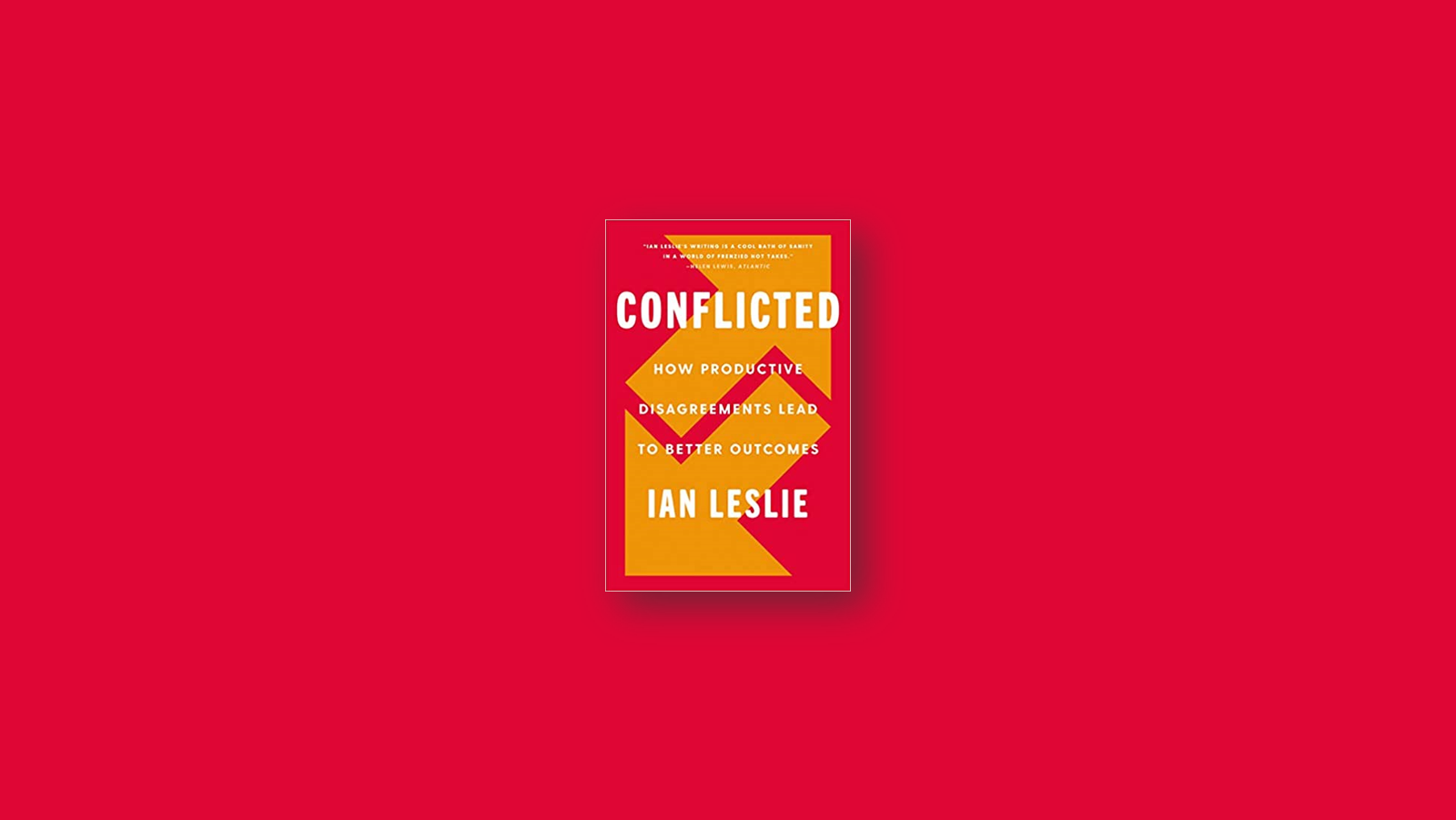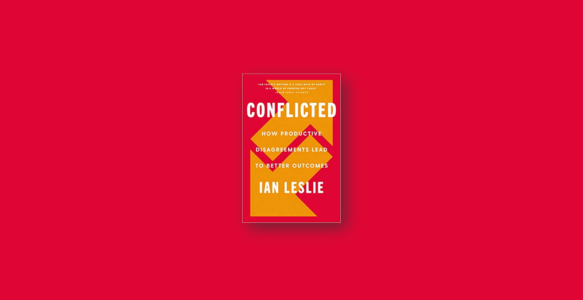First, Connect
Before getting to the content of the disagreement, establish a relationship of trust. Leslie wrote,
“Today, most experienced interrogators agree. Steven Kleinman, a former army colonel, was one of the US military’s most prolific and experienced interrogators and an outspoken opponent of the abusive practices used in the war on terror. He told me about an interrogation he carried out in Baghdad. His colleagues had captured an Iraqi gunrunner who had been selling arms to insurgents. Under aggressive questioning, the prisoner had steadfastly refused to speak, except – Kleinman noticed – to request a call to his daughters. When it was Kleinman’s turn to question the prisoner, he began by talking about how bad he felt about leaving his two daughters at home. In exchange, the Iraqi disclosed a worry that his work was making the city less safe for children. ‘We began speaking more as two concerned fathers than as an interrogator and detainee,’ said Kleinman. Although he didn’t it put it this way, Kleinman had used the norm of reciprocity. He opened up a little of himself, which cued the prisoner to do the same. The Iraqi went on to tell Kleinman everything he needed to know.”
Let Go of the Rope
To disagree well, you have to give up on trying to control what the other person thinks and feels.
When we meet someone who is deluded, or even just someone with whom we strongly disagree, we want to cure them of the belief. By attempting to do so, we only make their condition worse. Better to create conditions in which the patient heals herself. In fact, perhaps it’s best not to think of yourselves as patient and physician at all, but as two equally benighted and confused people relying on each other to reach better answers. That way, they’re more likely to see things your way and you’re more likely to learn something. Often there is a kernel of truth to a false belief, and you are more likely to spot it once you put aside your desire to be right. Give up on trying to control what the other person is thinking and you free your own mind too.
Give Face
Disagreements become toxic when they become status battles. The skilful disagreer makes every effort to make their adversary feel good about themselves.
In front of an audience of colleagues, people are more likely to focus on how they want to be seen, rather than on the right way to solve the problem. If it is important to me to be seen as competent, I might react angrily to any challenge to my work. If I want to be seen as nice and co-operative, I might refrain from expressing my strongly felt opposition to a proposal in terms strong enough for anyone to notice. That’s why, when a difficult work conversation arises, the participants often propose to ‘take it offline’. The phrase used to mean simply an in-person discussion, but it has gained the additional nuance of, ‘Let’s take this potentially tough conversation to a place where there is less at stake for our faces.’
Taking a disagreement offline can work but it should only ever be seen as a second-best option. It means the problem at hand is exposed to the scrutiny of fewer minds, losing the benefits of open disagreements. The best way to lower the identity stakes is to create a workplace culture in which people do not feel much need to protect their face; a culture in which different opinions are explicitly encouraged, mistakes are expected, rules of conduct are understood, and everyone trusts that everyone else cares about the collective goal. Then you can really have it out.
Make Wrong Strong
Mistakes can be positive if you apologise rapidly and authentically. They enable you to show humility, which can strengthen the relationship and ease the conversation.
Disagreements should be full of mistakes. A disagreement in which the participants plot their every intervention like a chess move and take great care not to say the wrong thing is an arid and passionless affair. It is unlikely to be productive, either.
Once you understand how and why disagreements go wrong, the prospect of disagreement’s bumpy, uncomfortable ride seems less intimidating than it might do otherwise. First, because you realise that it’s not just you – that people make similar mistakes all the time, except that usually they don’t recognise them as mistakes. Second, you come to see your mistakes as opportunities in disguise. By correcting your own error – resolving your bum note – you can strengthen your relationship with the other person and make the conversation richer.
When you say sorry, it has to mean something other than ‘Let’s move on’; otherwise it’s hard to move on, at least it is for the person who feels offended or badly treated. When you back down from a position, it’s OK to let the other person see how hard it is for you to do so – in fact, it’s better that way.
One of the worst ways to apologise is to say, ‘I’m sorry if . . .’ The ‘if’ immediately renders your apology cheap and insincere, because you’re not admitting to a mistake. If you’re not sure that you’ve made a mistake, best not to apologise at all, until you’re absolutely convinced you have.
Disrupt the Script
Hostile arguments get locked into simple and predictable patterns. To make the disagreement more productive, introduce novelty and variation. Be surprising.
Software engineers who design chatbots distinguish between ‘stateful’ and ‘stateless’ conversations. A stateful exchange is one in which the participants retain a memory of what is said during the conversation. Stateless dialogues are ones in which little or no conversational history is retained, and each new remark responds only to the last. They are so low context that they don’t even have the context of the previous conversation.
Have you ever had an argument like this?
- A: I really enjoyed that book.
- B: Oh really? It’s very poorly written.
- A: Why do you have to make me feel bad about what I like?
- B: Why do you have to play the victim all the time?
- A: Oh, that’s rich – you’re always playing the victim.
- B: Look, you’re clearly just in a bad mood today.
- A: I’m the one in a bad mood?
Stateless arguments can run on indefinitely and fruitlessly since there is nothing to solve or conclude. As they do so they usually become more unpleasant. Like water, argument becomes diffuse as it heats, but in this case, the resulting gas is toxic. You might forget what your argument with your partner was about, but you will probably remember how it made you feel.
Arguments with our friends and relatives often follow regular patterns. Once the argument begins, you can predict how things will unfold, like an expert chess player can predict the next eight moves in a game from a glance at the board. As the familiar script plays out, we find ourselves almost irresistibly swept along with it, playing our parts in a stale drama. To stop this happening, mix things up – say what the other person isn’t expecting you to say, agree on something unexpectedly, or switch topic for a while. You can vary how you say things as well as what you say: the language you use and the tone you deploy. It might be a note of humour or a touch of warmth, or even just something that doesn’t quite make sense. If you always have the argument in the kitchen or in an office, find somewhere else to have it out. What you’re trying to do is create space, literal and figurative, for a new way of communicating with each other. In fact, you might want to think about it as opening a secret back channel to your antagonist.
Only Get Mad on Purpose
No amount of theorising can fully prepare us for the emotional experience of a disagreement. Sometimes your worst adversary is yourself.
Average negotiators are most likely to react defensively to disagreement or implied criticism, using phrases like ‘You can’t blame us for that’ or ‘It’s not our fault.’ But all this does is provoke a sharp reaction from the other side, setting off a spiral.
More skilled negotiators handle things differently. It’s not that they never employ hostility, but they do so rarely, and when they attack, they hit hard and without warning. What this suggests is that skilled negotiators exert more conscious control over their aggression than less skilled ones. When they get hot, it’s because they are using heat as a means to an end. Perhaps they want to send a signal about what they care about, or to move the discussion out of a rut. Whatever it is, what they never do is let the conversation control them.
When someone is being rude or hostile to you, it’s almost like an invitation to you to do the same. A part of you naturally wants to accept the invitation and rip right into them. When that happens, we’re allowing them to control our reactions, instead of remembering that we have a choice of goals. Maybe your goal is to make that person feel bad about themselves, or to humiliate them – maybe you don’t care about burning the relationship. In which case, go ahead. Pursue that goal mindfully.
But often, it’s better to refuse their invitation and choose your own tone. If you’re talking to someone with whom you want or need to have a good ongoing relationship, following them down to the low ground will be a bad move for both of you. In which case, the best thing to do is to back up, slow down, and consciously choose your own path, instead of the one you have been invited to follow. Winning the argument right now suddenly feels less important. Even if you can’t reach a reconciliation with the other person, you’ll be reconciled with yourself.
Golden Rule: Be Real
All rules are subordinate to the golden rule: make an honest human connection.
Polis founder Jonathan Wender said the thing he found hardest about the job was what he calls ‘the bureaucratic paradox’. It is only as a police officer, a wearer of the uniform, that he had licence to intrude upon people’s lives. But at the same time, it was only when he transcended his official role that he was able to influence them. ‘If my job as an officer is to build a sense of trust, I can’t do that by acting as a rigid bureaucrat. As long as I saw things through the technical lens of the law I could not influence people in a lasting way. I must be humanly authentic myself.’
He added, ‘A human is not like a tree or a rock. We make meaning. A jet moving across a sky leaves a contrail of smoke, a boat moving through water leaves a wake; there’s no other way they can move. The same is true of a person moving through the world. When you walk into a room, you radiate meaning like a star gives off light.’ He continued. ‘So if that’s true, then good interaction with others means having a good purpose. Never objectify someone. Understand that they have a soul, and you have a soul.’


